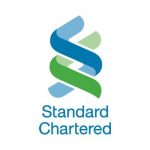Standard Chartered has announced that Flex, a global technology, supply chain and manufacturing solutions company, tapped into the bank’s USD1 billion financing commitment to help companies tackling COVID-19.
The shortage of ventilators and other critical care equipment is partly due to the limited number of companies that can manufacture at scale, globally. With capabilities to scale production and a global footprint, Flex has seen an uptick in critical care equipment demand from customers as a result. The USD50m loan will support Flex and its efforts to accelerate production of essential healthcare equipment.
Simon Cooper, CEO of Corporate, Commercial and Institutional Banking at Standard Chartered, said: “Flex has been actively addressing the supply chain issues facing the manufacturers of medical equipment, and we’re very pleased to be able to help accelerate the speed and scale of their response. This is a great example of how our commitment to lending specifically for the COVID-19 response has benefitted everything from small companies that require USD500,000 to produce or procure masks or hand sanitiser, to multinationals such as Flex who, with USD50 million of financing, can make a significant impact on the supply of equipment such as ventilators and other critical healthcare equipment.”
This drawdown by Flex follows recent disbursals from the programme in markets including Uganda, Kenya, Sri Lanka, Vietnam, Singapore, the U.S. and China, with more transactions in the pipeline.
Standard Chartered has been part of a number of transactions this year that help the fight against COVID-19, and launched this additional USD1 billion programme to provide financing on a non-profit basis to companies making products and services that help the front line fight the virus and its impacts.
The programme requires specific use of proceeds, in this case for the purposes of unlocking the ability to maximise impact and speed of delivery. Products and services being financed under the programme include diagnostic equipment and ventilators, masks and other personal protective equipment, antiviral medicines and conversions into emergency facilities.








